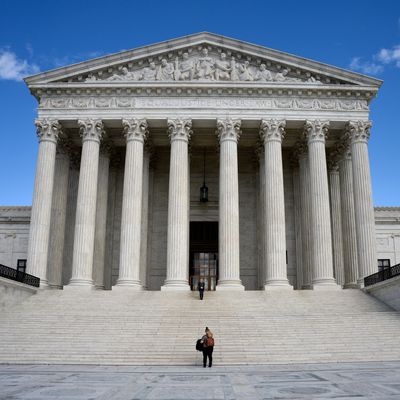
In a closely watched case, the Supreme Court on Monday ruled in favor of a Colorado baker who refused to make a custom cake for a gay couple. But the 7–2 decision was narrow in its scope, leaving open the possibility that a similar case might be brought before the court in the future, and that it could go the other way.
Jack Phillips, the baker, had declined to create the wedding cake for the couple, David Mullins and Charlie Craig, claiming that his religion beliefs forbid him to do so. The couple filed a complaint with the Colorado Civil Rights Commission, which ruled in the couple’s favor, as did state courts. The blockbuster case pitted the government’s authority to protect people against discrimination versus the right to take discriminatory actions justified by expression of one’s religious beliefs — an important issue for conservatives who argue for a broad “religious liberty” exemption in cases involving LGBTQ rights.
But the Court stayed away from a broad ruling on this conflict, and instead based its decision on the failure of the Colorado Civil Rights Commission to take Phillips’s religious views seriously.
Justice Anthony Kennedy, on whose vote the case was expected to hinge, wrote for the majority. He was joined by the four other justices on the conservative wing of the court, but also by two on the liberal-leaning side, Elena Kagan and Stephen Breyer.
“The outcome of cases like this in other circumstances must await further elaboration in the courts,” Justice Kennedy wrote, “all in the context of recognizing that these disputes must be resolved with tolerance, without undue disrespect to sincere religious beliefs, and without subjecting gay persons to indignities when they seek goods and services in an open market.”
Presumably, Kagan and Breyer would have ruled differently if the court had opined on the more weighty constitutional question. If a similar case does reach the Supreme Court again — and if Kennedy doesn’t retire after this term — he will again be the one to watch.






























